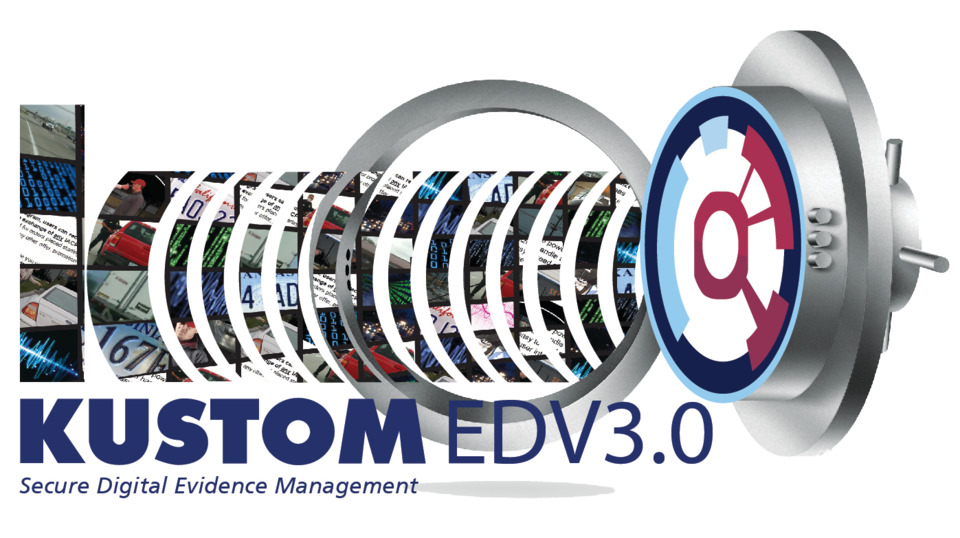What is the Cloud?
Here’s a better question: what is a server? Technically, any computer connected to a network is a server.
But that’s not the kind of server that you’re used to seeing. What you’re thinking about is the big black boxes with colorful lighting that stay piled up in your department’s data room. These are computers too; only they don’t have a screen attached to them. Their only function is to store data and lend storage and processing power to other devices in the network.
Right now, most police departments use servers that are located on-site, inside the police station itself. These servers power all the computers within the police network and contain vast amounts of information about officers, case files, suspects, and convicted criminals. But the server doesn’t always have to be situated within your department’s headquarters. There’s another way.
Storing your data servers on-site means being on the look-out for physical hazards, hackers, data thieves, and malware that only engineers are equipped to handle. But if you could store your servers elsewhere, such as a well-fortified data center with its own team of engineers working on these machines full time, you could rest easy. All you’d have to do is fire up your internet connection and access all your station’s data remotely from anywhere in the world. That’s what the cloud does.
Why Choose the Cloud?

The way information is stored and relayed is changing fast. With the introduction of body cams and dash cams into most police forces, it has become important to find a reliable and more cost effective way to store a significantly increasing amount of data. Failing to do so can result in the cancellation of programs before they even begin.
The cloud provides a safer and more efficient way to store your agency’s data and borrow additional computing power. Here are some benefits of migrating your system to the cloud:
- It provides you with unlimited space to store your agency’s data.
- The data is stored in a more secure environment, free of intruders, malware and infrastructural hazards.
- Servers don’t have to be located physically within your department’s station. This frees up office space and reduces expenses on infrastructure.
- All databases stored on the cloud can be accessed remotely using a smartphone or computer.
- The databases can be edited remotely. This lets police officers submit incident reports directly from the field.
- It provides a unified platform that field officers and administrators can use to interact and share information in real-time.
Why Say Goodbye to the Old Way?

Back in the old days, police data was recorded with pen and paper and placed inside thick case files that stacked up on desks all over the station. Files were always at the risk of being damaged by the elements or simply disappearing over time.
When computers rose to popularity, more and more police stations started keeping soft copies of their data. But this came with the additional burden of needing a place to store all the additional hardware, including bulky servers that took up a lot of space and had high maintenance costs. The traditional model was flawed, because:
- Servers take up a lot of space.
- They come with an ever-increasing cost of maintenance.
- While not as frail as a piece of paper, servers need protection from the elements too. They must be stored in an environment that’s neither too hot nor too cold. They also have to be kept safe from fire and water.
- Protecting your databases from malware and cyberattacks can be extremely tricky and expensive. This is a job best left to engineers, so most police stations these days need to have dedicated engineering departments to store their servers.
- Accessing databases is more complicated.
- You need to be physically near the servers to access the data.
Moving to the Cloud
Instead of investing in costly hardware and software, you could just rent your own space in the cloud, essentially getting access to all the necessary storage space, processing power, and software equipment on a pay-as-you-go basis.
If you’re committed to moving to a fully cloud-based system, software-as-a-service (or SaaS) is a common way of doing so. Both the hardware and software are hosted entirely by the service provider; all you need is an internet connection and a screen to review the data. Both Amazon’s Web Services and Microsoft’s Azure are great examples of SaaS platforms, where you pay only for what you use.
Kustom Signals offers a different, law-enforcement focused model to pricing: Our Kustom Kloud enables departments to pay either by officer or via a fixed price per 100GB of storage.
Either option can help cut down on unnecessary costs and remove the need for lumpsum investments. Since the service provider is responsible for pushing updates and keeping the system well-maintained, you don’t have to worry about that either.
The Hybrid Way
Hybrid cloud solutions such as our Hybrid Kloud are slightly more complicated, but there are benefits. You can store data in bulk without shelling out a huge yearly budget. Your most important files are stored in the cloud, but the rest still stays with you in your own datacenter. This helps minimize costs and makes the move less intimidating.
Here is a summary of the key points for utilizing our Hybrid Kloud:
- Store only selected evidentiary files to the cloud.
- Non-evidentiary files can be stored on-premise.
- All of the benefits of cloud storage at a lower cost.
- Opportunity to scale into a full cloud solution at your own pace.
- Internet bandwidth is not as critical for upload and access of files.
Digital Video Management Platforms

Once the best data storage solution has been determined, it’s becoming more and more important for law enforcement officers to be able to store and access this data for their specific requirements: Whether it be to save upload time or gain multi-camera playback, simple and advanced searches, and easy file duplication.
At Kustom Signals, we therefore also offer our own digital video asset management platform, the Eyewitness Data Vault (EDV) and EDV Lite: You can find out more about these offerings, here. Both solutions provide a powerful digital video management solution that securely manages in-car and other digital video assets, providing database access only to authorized users.
If you’re in law enforcement, it is now more important than ever to stay abreast of the latest technology, especially as criminals evolve newer and more nefarious ways of misusing it to their ends. A cloud-based system could allow police officers to stay on top of the data they need to track down crimes as they unfold. It could also help many departments relieve long-term pressure from a stressed public budget.

